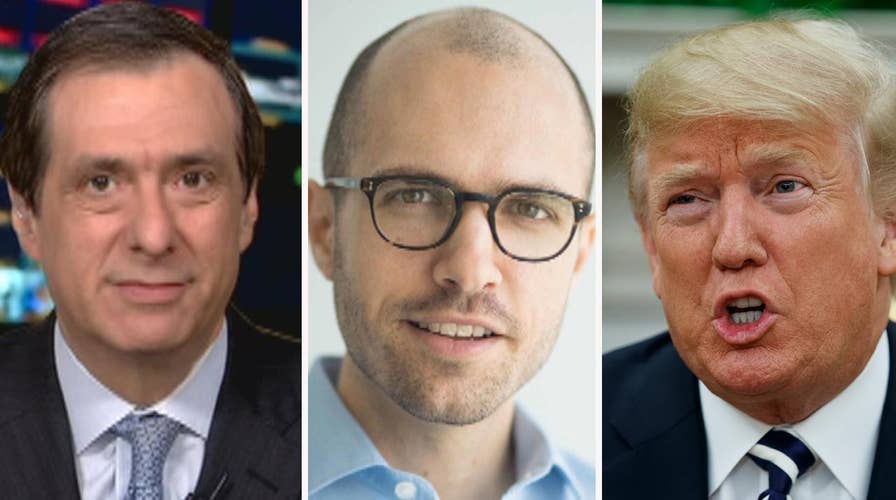Kurtz: Why A.G. Sulzberger took on the president
'MediaBuzz' host Howard Kurtz weighs in on the Twitter feud between President Trump and The New York Times publisher A.G. Sulzberger.
It was somewhat encouraging to learn that President Trump was willing to invite the publisher of what he constantly attacks as the "failing" New York Times to talk through their differences.
As I reported in my book, Trump has had other off-the-record sitdowns with such journalists as Chuck Todd, and also George Stephanopoulos, that serve as venting sessions and keep the lines of communications open.
But then, as so often happens with the president and the press, it all dissolved into acrimony.
Trump revealed the "very good and interesting" July 20 meeting with A.G. Sulzberger, and Editorial Page Editor James Bennet, in a tweet.
He said they spent much time talking "about the vast amounts of Fake News being put out by the media & how that Fake News has morphed into phrase, 'Enemy of the People.' Sad!"
That opened the door, as the lawyers say, for Sulzberger to fight back. The 37-year-old rookie publisher wasn't about to leave an image that he was summoned for a lecture. So he issued a tough statement assailing Trump’s "deeply troubling anti-press rhetoric":
"I told the president directly that I thought that his language was not just divisive but increasingly dangerous.
"I told him that although the phrase 'fake news' is untrue and harmful, I am far more concerned about his labeling journalists 'the enemy of the people.' I warned that this inflammatory language is contributing to a rise in threats against journalists and will lead to violence."
No way Trump was going to let that go unanswered. In a tweetstorm, the president said it was the news business that is endangering people:
"When the media - driven insane by their Trump Derangement Syndrome - reveals internal deliberations of our government, it truly puts the lives of many, not just journalists, at risk! Very unpatriotic!"
He also said: "I will not allow our great country to be sold out by anti-Trump haters in the dying newspaper industry."
So now we have a situation where each side is accusing the other of jeopardizing lives.
The president has every right to push back against the overwhelmingly negative coverage he receives. As one example on the commentary side, the Times doesn't have one pro-Trump columnist. Its conservative op-ed writers seem to rip him with as much fervor as the liberal ones.
If the media jack up everything to 11, from Putin to family separation to a Michael Cohen tape about a Playboy model, then much of the coverage gets reduced to background noise.
But I wish the president would stop the "enemy" and "unpatriotic" language, which may excite his base but does cross a red line. News organizations have a long history of withholding, softening or delaying national security secrets when officials make the case that lives could be at stake. But the press has been reporting on what Trump calls "internal deliberations of our government" since the founding of the republic. It’s hardly unpatriotic to report on problems involving the head of the EPA or HHS, which forced out both Scott Pruitt and Tom Price.
Times Executive Editor Dean Baquet declined to attend the meeting, telling BuzzFeed that he doesn't like talking to top officials off the record and that "I don't want to be courted or wooed."
But it's actually healthy that Sulzberger and Bennet sat down with Trump to mutually air their grievances. It's too bad the session wound up escalating tensions instead of reducing them.





